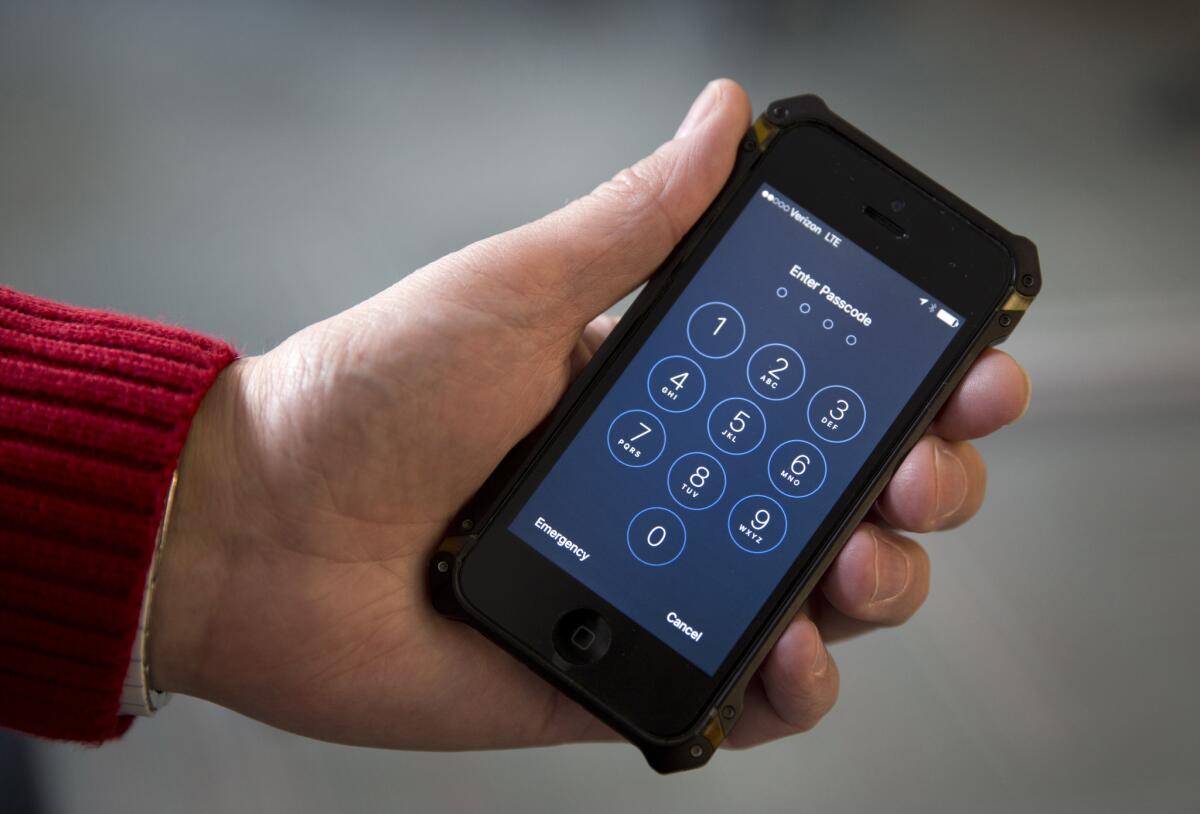FBI says it won’t tell Apple how hackers got into terrorist’s iPhone because it doesn’t know

The FBI will not tell Apple how it unlocked an iPhone used by one of the terrorists in the San Bernardino attack because the bureau does not possess enough of the technical details about the hack to make such a disclosure worthwhile, a top agency official said Wednesday.
Amy S. Hess, the FBI’s executive assistant director for science and technology, said that in purchasing the method that allowed agents to hack into the phone from a third party, the FBI had not acquired “the rights to technical details about how the method functions.”
See the most-read stories this hour >>
“As a result,” Hess added in a statement released to reporters, “currently we do not have enough technical information about any vulnerability that would permit any meaningful review” under a process in which the FBI and other federal agencies can debate whether, and how, to disclose cyber security gaps to private companies.
The decision was just the latest twist in a battle pitting law enforcement against Apple and other technology companies over access to gadgets, computers and messaging systems that are increasingly being encrypted. The Justice Department obtained a court order in February compelling Apple to write software that would enable FBI agents to open an iPhone once used by Syed Farook, one of the terrorists who killed 14 and wounded dozens of others in the December terror attack in San Bernardino.
The FBI needed that assistance, the Justice Department said, or it risked accidentally erasing all the data on the device. Apple was fighting the order when the Justice Department last month abruptly dropped the case, saying it had been approached by a third party that successfully penetrated the iPhone’s stiff cyber shields.
FBI Director James B. Comey has said the hack cost the bureau more than $1 million.
Apple has been working to upgrade encryption on all of its devices and indicated it was not planning to take the FBI to court to learn how hackers breached the device’s security.
FULL COVERAGE: Apple’s fight with the FBI >>
“We’re confident that the vulnerability the government alleges to have found will have a short shelf life and... in our normal process, we will continue to iterate the phones, we’ll continue to improve the phones and at some point this fix will get implemented,” an Apple attorney, speaking on condition of anonymity, told reporters early this month in a conference call.”
The Justice Department last week dropped a separate effort to force Apple to unlock another iPhone, this one owned by a convicted drug dealer in New York City.
ALSO
SpaceX will head to Mars as soon as 2018
Apple shares rebound slightly as analysts cut forecasts
Fed keeps interest rates unchanged, gives no hints on timing of future hike




